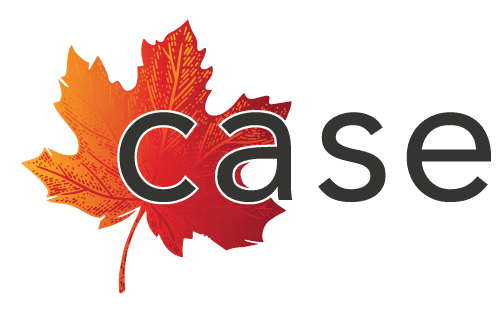An Intersectional Approach to Supporting Career Development:
Changing Perspective through Safe Exploration
“We all possess unique skill sets and challenges based on our position of power and privilege dynamics, which are very real in everyday situations. When we understand the roles that trauma and racism play in clients’ lived experiences and abilities and how that differs from our own, we’re closer to reaching equity and true inclusion and belonging.”
Carissa Gravelle, CASE’s Facilitator for IASCD
Training such as CASE’s online certificate program, An Intersectional Approach to Supporting Career Development (IASCD), can help to fill the gaps in our understanding of the additional challenges that persons with intersecting identities face when seeking employment or at work. Persons with intersecting identities might be Black, Indigenous, people of colour, and 2SLGBTQ+.
Hearing about peoples’ lived experiences can lead to moments of understanding that can shift our perspective and help us to adjust how we work with others.
Stories based on people’s actual experiences are important components of IASCD. They help us to understand how persons with intersecting identities operate every day in the world, the unique challenges they face, and how best to support them.

Credit: The Jopwell Collection – Unsplash
Equity Is Not about “Not Seeing Colour or Race”
Equity is not about “not seeing colour or race” or about “looking at everyone equally.” While this way of working may stem from good intentions, it can be more harmful. Equity is about acknowledging that persons who are Black, Indigenous, people of colour, or 2SLGBTQ+ may have very different experiences and interactions in the world than our own. These interactions may cause them to experience trauma and chronic stress and may impact how they show up and operate.
Carissa Gravelle, CASE’s Facilitator for IASCD, compared it to running a race: “It’s like giving a team of 10 people a size 5 shoe and expecting them to all win the race. I don’t know how many people could win that race. A few people might have an advantage and others would be disadvantaged. Similarly, it’s impossible for us to treat everyone equally if we’re ignoring their unique differences and challenges.”
Training Supports Everyday Work with Job Seekers
Training in intersectionality offers practical tools to support our everyday work as employment service providers. It provides even more tools and knowledge to ensure we are supporting clients in a holistic way.
The IASCD training:
- Develops our intersectional lens, so that our efforts can be even more targeted and effective for persons who experience disability and have intersecting identities.
- Offers tools to assess and learn how trauma impacts job seekers and how it can affect how they show up and operate.
- Helps us to reflect and to explore our unconscious biases in a safe environment, and not to project what we would do in the other person’s shoes.
- Further nurtures our ability to actively listen and focus on a client’s strengths and to ask what support they need.
- Provides an opportunity to brainstorm with other career professionals, for instance around how to use the resources to approach and have conversations with employers.

Credit: LinkedIn – Unsplash
“Learners are provided with tangible ways to do personal reflections. The conversations and reflections demonstrate deep learning as people are manoeuvring through the work and finding really great strategies to apply to their work moving forward.”
Carissa Gravelle
Participants at All Knowledge Levels Learn from Each Other
Some participants of IASCD may be entirely new to intersectionality, some may have limited awareness, and others may already be applying it in their work. The weekly group webinars are an opportunity for all participants to learn from each other. Facilitated conversations are guided by that week’s reading and questions. Group discussions allow the unpacking of case scenarios and the exploration of program concepts.
Sharing and listening to professional and personal lived experiences in a safe, confidential environment helps people to understand those experiences and to shift their perspective. These online discussions allow for rich engagement as we learn about others’ experiences in both urban and rural regions across the country.
Training on Intersectionality Benefits All Staff and Leadership
In addition to more targeted support for clients, IASCD offers content for organizations to begin incorporating an intersectional lens into their operational framework to create a more psychologically safe environment for their staff. When staff feel safe to show up as their authentic self, they feel valued and they’re able to function more productively.
“Learning about intersectionality ensures that all voices are heard with empathy—without assuming we already know what those voices need. It’s as simple as that. ”
Carissa Gravelle

